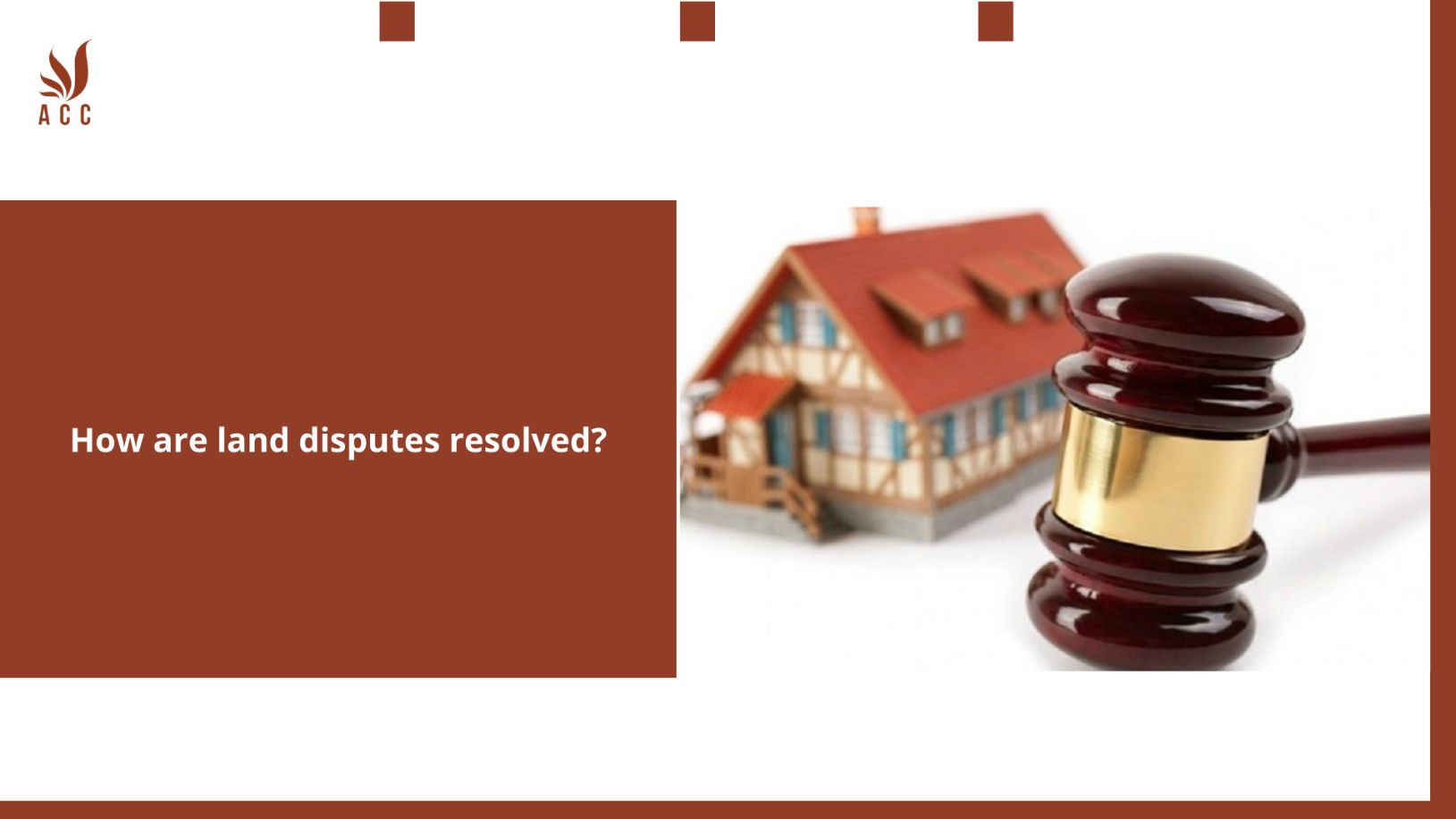Land disputes can be resolved through various methods, depending on the nature of the dispute, the parties involved, and the legal systems in place in the relevant jurisdiction. Here are some common methods for resolving land disputes:

1. Negotiation:
Parties involved in a land dispute can engage in direct negotiations to reach a mutually agreeable solution. This method often involves open communication, compromise, and finding common ground. Negotiation is typically less formal and can lead to faster resolutions.
2. Mediation:
Mediation involves a neutral third party, known as a mediator, who assists the disputing parties in reaching a resolution. The mediator facilitates communication, helps identify common interests, and works toward an amicable agreement. Mediation is a voluntary and often less adversarial process compared to litigation.
3. Arbitration:
In arbitration, an impartial arbitrator or panel of arbitrators reviews the dispute, listens to both sides, and renders a decision that is legally binding. Arbitration can be less time-consuming and formal than court litigation and is often used when parties have agreed to arbitration in advance.
4. Litigation:
Land disputes can be resolved through traditional legal proceedings, such as filing a lawsuit in court. The case is presented to a judge or jury, who makes a final decision. Litigation is typically more formal and may take longer, but it is a suitable option when other methods fail or when parties cannot reach a resolution on their own.
5. Title Searches and Surveys:
Disputes related to property boundaries and land ownership can sometimes be resolved through a title search to confirm property ownership and land surveys to accurately define property boundaries.
6. Alternative Dispute Resolution (ADR):
ADR methods, including mediation and arbitration, provide alternative paths to resolve land disputes outside of the court system. Many jurisdictions encourage or require ADR as a preliminary step before taking a dispute to court.
7. Land Court:
In some regions, specialized land courts or tribunals are established to handle land-related disputes. These courts have expertise in property and land matters, expediting the resolution process.
8. Settlement Agreements:
Parties can enter into a settlement agreement or consent order, outlining the terms of their resolution. These agreements can be reached at any stage of the dispute, including during litigation.
9. Regulatory and Administrative Procedures:
Some land disputes, especially those involving zoning, land use, or development, may be subject to regulatory or administrative procedures set by local authorities.
10. Expert Witnesses:
In some cases, expert witnesses, such as surveyors, appraisers, or environmental specialists, may be called upon to provide their expertise and help determine the facts of the case.
The choice of the appropriate method for resolving a land dispute depends on the specific circumstances, the preferences of the parties involved, and the legal requirements of the jurisdiction. Legal advice and consultation with a qualified attorney are often essential to navigate the process effectively and ensure the rights and interests of all parties are protected.
11. When using ACC Law Firm's land-related services, entrepreneurs will receive
When using ACC Law Firm's land-related services, entrepreneurs will receive expert advice and assistance in navigating various legal aspects of land ownership and transactions. This includes guidance in property acquisitions, leases, zoning regulations, land use planning, and any other land-related legal matters. ACC Law Firm's team of experienced attorneys will provide personalized support to entrepreneurs, ensuring compliance with applicable laws and regulations, protecting property rights, and optimizing the value of their land investments.
12. Q&A
Q1: What is the first step in resolving a land dispute?
A1: The first step in resolving a land dispute is often attempting an amicable resolution through open communication and negotiation with the other party involved. This can help both parties reach a mutually acceptable agreement without resorting to legal actions.
Q2: What are the methods commonly used to resolve land disputes?
A2: Land disputes can be resolved through various methods, including negotiation, mediation, arbitration, or legal action in the court system. The specific method chosen depends on the parties involved and the nature of the dispute.
Q3: Can mediation or arbitration be effective in resolving land disputes?
A3: Yes, mediation and arbitration can be effective methods for settling land disputes. These alternative dispute resolution (ADR) processes can help parties reach mutually acceptable solutions without going through the formal court system. They are often faster and less adversarial than court litigation.
Q4: When might legal action become necessary to resolve a land dispute?
A4: Legal action in the form of a lawsuit may become necessary when parties are unable to reach a resolution through negotiation, mediation, or arbitration. If property rights are at risk, or if there is a need for a legally binding decision, one or both parties may decide to initiate legal proceedings in court.
Nội dung bài viết:






Bình luận